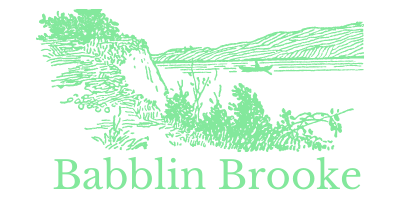Journaling serves as a powerful tool for those seeking self-discovery and growth. By putting thoughts and feelings on paper, individuals can gain clarity about their experiences and emotions. This practice not only encourages reflection but also fosters a deeper understanding of oneself, enabling personal transformation.
Through regular journaling, individuals can track their progress and recognize patterns in their behavior and thoughts. This awareness can lead to actionable insights, promoting healthier habits and choices. The process of writing can simplify complex feelings, making it easier to navigate life’s challenges.
Engaging with a journal allows for freedom of expression without judgment. This safe space encourages individuals to explore their aspirations, fears, and questions, ultimately leading to greater self-awareness. By committing to this practice, one can unlock potential and cultivate a more fulfilling life.
Understanding the Power of Journaling
Journaling serves as a powerful tool for self-reflection and personal growth. It facilitates deeper awareness and clarity, enabling individuals to explore their thoughts and emotions effectively. The following sections highlight the definition of journaling, its role in self-reflection, and its impact on self-awareness.
What Is Journaling?
Journaling involves the practice of writing down thoughts, feelings, and experiences regularly. It can take various forms, such as traditional pen-and-paper diaries, digital journals, or guided prompts. The purpose is to create a safe space for expression, allowing individuals to articulate their innermost thoughts without judgment. This continuous engagement with written words can lead to significant insights about personal values, career goals, and relationships.
Journaling as a Tool for Self-Reflection
Through the practice of journaling, individuals can engage in self-reflection and critically assess their life choices. This process helps in identifying patterns in behavior and thought processes. By asking guiding questions or recording experiences, one can evaluate responses to situations. Reflection facilitated by journaling contributes to understanding one’s motivations and triggers, leading to informed decision-making.
Journaling and Self-Awareness
Self-awareness is vital for personal growth and development. Journaling enhances this quality by encouraging individuals to confront their feelings and beliefs. As thoughts are laid out on paper, one can recognize emotional reactions and underlying beliefs. This newfound awareness cultivates a deeper understanding of oneself, allowing individuals to navigate challenges with greater confidence and clarity.
Incorporating journaling into daily routines can empower individuals to journey toward self-discovery. This practice not only reveals insights but also fosters a proactive approach to personal development.
Benefits of Journaling for Self-Discovery and Growth
Journaling offers a range of benefits that significantly contribute to self-discovery and personal growth. It serves as a powerful tool for promoting insight, fostering emotional stability, enhancing creativity, and reducing stress.
Promoting Insight and Mental Clarity
Journaling enhances personal insight by encouraging reflection on experiences and thoughts. Regular writing helps individuals organize their thoughts, leading to clearer decision-making and a deeper understanding of their goals.
By articulating feelings and ideas, they can identify patterns that may not be apparent in daily life. This mental clarity supports more effective problem-solving and increases self-awareness.
Keeping a journal provides a space for critical thinking. This practice nurtures an individual’s ability to process emotions and thoughts in a structured way.
Fostering Emotional Release and Stability
Writing about emotions can be a cathartic experience. Journals offer a confidential space for individuals to express pent-up emotions. This process can lead to emotional release and ultimately stabilize mood.
Articulating feelings helps in processing experiences, leading to enhanced emotional regulation. This can mitigate feelings of anxiety or depression.
The act of journaling itself can serve as a form of self-care. It allows for intentional reflection on daily events, fostering emotional connections to those experiences.
Enhancing Creativity and Focus
Journaling can stimulate creativity by serving as a free space for idea generation. It encourages individuals to think outside conventional frameworks and explore new concepts.
By writing unrestricted thoughts, they can unlock their creative potential. This practice often leads to innovative solutions in various aspects of life.
In addition, journaling sharpens focus. Writing regularly trains the mind to concentrate on one task. This ability to focus can then translate into other areas of life, enhancing productivity.
Reducing Stress and Improving Mental Health
One of the most notable benefits of journaling is its role in stress reduction. Documenting thoughts and feelings can serve as a release valve for stressors.
By confronting issues on paper, individuals may feel a sense of relief, leading to improved mental health. This process lessens the emotional burden they carry.
Moreover, studies indicate that journaling can lead to lower levels of anxiety and improved mood. As individuals engage in this practice, they often experience long-term benefits for mental well-being.
Journaling Techniques for Deep Self-Exploration
Effective journaling techniques can facilitate profound self-discovery and personal growth. By employing various methods, individuals can tap into their subconscious, recognize patterns in their lives, and enhance their overall well-being.
Gratitude Journaling for Positive Change
Gratitude journaling focuses on writing down things for which one is thankful. This practice can shift perspectives, fostering positive emotions. Individuals typically list three to five things daily, ranging from simple joys to significant achievements.
By consistently acknowledging what is positive, people often discover strengths and foster resilience. Over time, this technique can cultivate a habit of positivity that spills over into daily life.
To enhance the process, individuals may include reflections on how specific events impacted their well-being. This practice provides a safe space for self-reflection, leading to deeper insights.
Dream Journaling and the Subconscious Mind
Utilizing a dream journal serves as a powerful tool for accessing the subconscious. Recording dreams immediately upon waking aids in capturing fleeting memories that often hold significant meanings.
Patterns and recurring themes often emerge from documented dreams. Individuals can analyze these elements to gain insights into their thoughts and emotions. It can be especially beneficial for problem-solving, as the subconscious often processes issues during sleep.
Regularly reviewing past entries can reveal personal growth and evolving perspectives. This practice fosters a deeper understanding of oneself and helps in exploring unaddressed feelings.
Introspective Prompts and Pattern Recognition
Introspective prompts guide individuals in exploring thoughts and feelings in a structured manner. Prompts might include questions such as, “What challenges have shaped me?” or “What do I want to achieve in the next year?”
By responding to these questions, individuals can identify patterns in their behaviors and thought processes. This recognition is crucial for personal development and awareness.
To maximize effectiveness, individuals may set a timer for reflection, ensuring they can write freely without distraction. Consistent practice can lead to unlocking subconscious thoughts that impact daily life.
Visualization and Manifestation Practices
Visualization techniques in journaling can significantly influence personal outcomes. By writing detailed descriptions of desired goals, individuals can create a vivid mental image that aligns with their aspirations.
Manifestation practices involve focusing thoughts on achieving specific objectives. Journaling about these intentions allows for clarity, making the desired outcome more tangible.
It is helpful to write as if the goals have already been achieved. This technique reinforces positive thoughts and manifests real-life changes. Over time, visualizing success becomes a part of one’s daily routine, enhancing motivation and direction.
Integrating Journaling Into Your Growth Journey
Incorporating journaling into a personal growth journey enhances introspection and self-discovery. By establishing a regular practice, individuals can foster mindfulness, emotional release, and spiritual connections.
Building a Sustainable Journaling Practice
To establish a sustainable journaling practice, consistency is key. Setting aside specific times daily or weekly can help create a routine.
Many find that mornings or evenings are ideal for reflection. Individuals may use prompts to guide their thoughts, exploring feelings, goals, and experiences.
It can be beneficial to choose a comfortable space that encourages writing. Having dedicated materials, such as notebooks or digital apps, may enhance motivation and engagement.
Journaling for Mindfulness and Peace
Journaling serves as a powerful tool for cultivating mindfulness and achieving inner peace. By writing down thoughts and feelings, individuals can process emotions in a constructive way.
This practice facilitates emotional release, allowing for clarity and a deeper understanding of one’s mental state. Regular journaling may lead to improved sleep quality as well.
Setting aside time for this reflection helps individuals stay grounded, increasing awareness of their present state. Moments spent journaling can promote gratitude and highlight positive aspects of life.
Connecting Journaling with Meditation and Spiritual Growth
Pairing journaling with meditation enhances spiritual growth and self-exploration. After meditative practices, individuals can write down insights gained during the session.
This connection may deepen consciousness, providing clarity on spiritual matters. Journaling post-meditation encourages the integration of experiences into daily life.
It supports introspection, allowing individuals to explore their purpose and motivations. Practicing this combination may lead to enhanced personal and spiritual development over time.






Leave A Comment